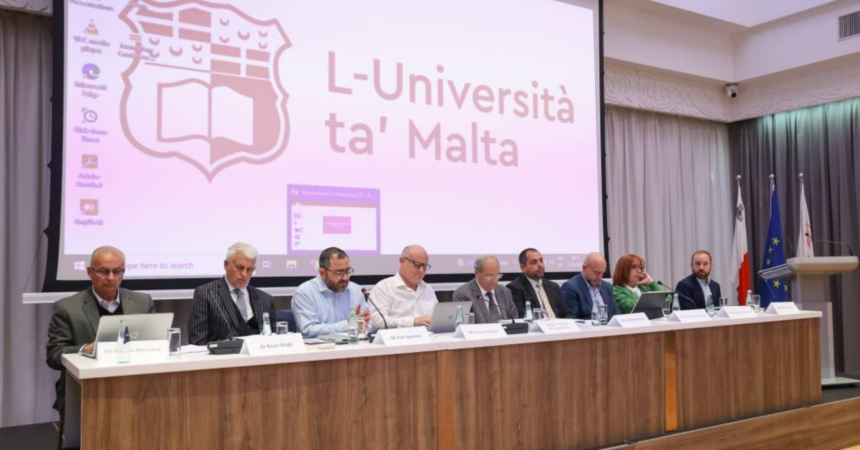The government-appointed ‘Media Experts Committee’ will be disbanding by the end of the month with practically no legislative changes introduced in support of press freedom since its setting up in January 2022.
The Committee has refused to answer questions on what, exactly, has been achieved both since its introduction and during the six-month extension to its term, which had originally been set to end last January.
The stance is characteristic of the entire process surrounding the implementation of the Daphne Caruana Galizia inquiry recommendations for an improved media landscape.
Marking the end of its term, the Committee is expected to present a report detailing the consultations and conclusions since its appointment in January 2022.
The Committee chose not to answer questions from The Shift, which asked for details on the state of the legal reform intended to strengthen press freedom, which they were set up to advise on. Neither did it answer questions on whether the widely criticised ‘public’ consultation process was expanded upon by their board.
In response to The Shift’s questions, the Committee only said that it “is committed to respect the extended mandate date,” and that, “the extension has enabled the Committee to conduct further consultations and take stock of various observations.”
When pressed for more details on what the further consultation and various observations could be, the government-appointed secretary Frank Mercieca said that the Committee provided no further details for him to relay.
Mercieca said that the Committee had met frequently in the last months and was in the process of writing a final report on its findings and consultations.
The Committee’s mandate
The Committee’s year-and-a-half mandate has been problematic since its inception, with claims of broad consultation on the selection of the Committee’s members belied.
It was originally set up on 11 January 2022 to provide recommendations and guide the implementation of 12 government legislative proposals created in response to recommendations made in the Daphne Caruana Galizia Public Inquiry.
The proposals were presented to the Committee as a ready-made fait accompli.
The Committee took a similar stance of non-disclosure on the review process of the 12 proposals, which notably excluded the introduction of an inquiring magistrate on corruption and the introduction of unexplained wealth checks.
The government refused to publish the eventual Committee report reviewing the legislative proposals, which, although completed in April 2022, gathered dust until June. This meant that Prime Minister Robert Abela was breaching his own terms of reference established when the Committee was set up the previous January.
Abela sat on the report for over a month and failed to table it in Parliament before the 2022 summer recess. The move garnered criticism and meant that the review of the government’s proposals remained hidden from public scrutiny as the Committee insisted it was not within its remit to publish the report.
By August, the government had fully implemented only one of the Caruana Galizia inquiry board’s 28 recommendations. In September, Abela was sent a letter signed by over 100 signatories involved in the media sector, including 11 editors, urging for the proposals to be published and for a proper consultation process to be held.
Justice Minister Jonathan Attard eventually made the government’s proposals public in late September 2022, claiming a wide consultation process that never happened.
Following the proposals being made public, The Shift published a detailed analysis comparing them with the Caruana Galizia board’s original suggestions which concluded that the government versions were significantly watered down.
In response to the backlash, Abela promised to halt the legislative introduction of the media reform proposals until the Media Experts Committee could conduct further consultation and produce a second report.
In January 2023, Abela granted a request by the Committee’s chair, retired judge Michael Mallia for an extension to its mandate, lengthening it until end-June. In February, the committee set up a poorly-attended conference, meant to act as a public consultation, at which not even Justice Minister Attard was present.
Last March, The Shift revealed how Malta Today co-owner Saviour Balzan held concurrent roles as both a member of the Media Experts Committee and a PR advisor to the Justice Ministry in 2022, ostensibly clashing jobs which the Committee said “no explanation was needed or offered” for.
In the same month, the Council of Europe noted how the Maltese government had as yet failed to implement the Caruana Galizia Inquiry’s recommendations. Since then, The Shift is not aware of any meaningful change or developments in the long-drawn-out media reform.
The media experts Committee comprises IGM president and Assistant Editor at The Times of Malta, Matthew Xuereb, Media Today co-owner Saviour Balzan, Malta Today’s editor Kurt Sansone, The Malta Independent former Senior Editor Neil Camilleri, University Pro-Rector for Student & Staff Affairs Carmen Sammut, Criminology professor Saviour Formosa and chaired by Michael Mallia, a former judge who was one of three handling the public inquiry on the assassination of journalist Daphne Caruana Galizia.













